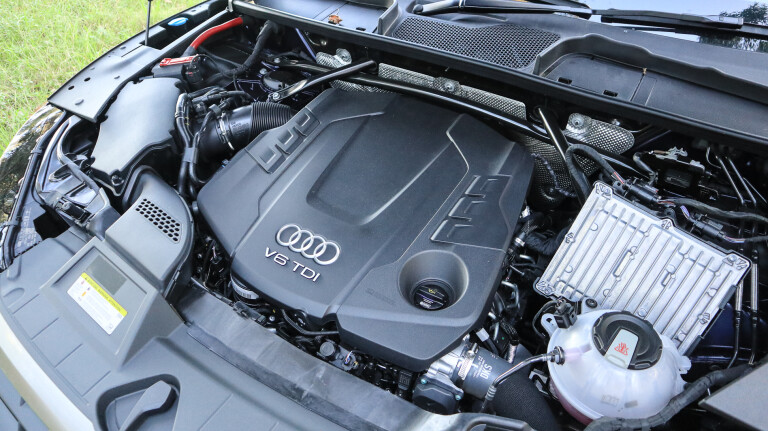
Snapshot
- Audi updates six-cylinder diesels to include biofuel compatibility
- Currently limited to engines producing 210kW or less
- Next-generation diesel said to reduce C02 emissions by up to 95 per cent, compared to regular diesel
Audi has confirmed a number of its vehicles fitted with a six-cylinder turbo-diesel engine are now compatible with next-generation biofuels.
All six-cylinder diesel Audis producing up to 210kW of power and built from mid-February 2022 onwards are now approved for use with hydrotreated vegetable oil (HVO) – a next-generation diesel fuel claimed to reduce CO2 emissions by between 70 and 95 per cent in comparison to conventional ‘fossil’ diesel.
The luxury marque claims the use of HVO in its diesel vehicles also brings a higher cetane rating, allowing for greater efficiency and a smoother cold start – in addition to producing fewer carbon emissions.

HVO is designed to meet the 2016 European Standard EN15940, which specifies second-generation biofuels and e-diesels made from a Fischer-Tropsch process.
Models now compatible with renewable diesel include; the A4, A5, A6, A7, A8, Q7, and Q8. The Q5 and A6 Allroad will be modified in the coming months, with all vehicles to feature an XTL sticker on the fuel tank cap.
The 3.0-litre diesel Volkswagen Touareg, with shares its engine and MLB Evo platform with the Q7, is also now accordant with HVO diesel.

A number of four-cylinder diesel Audi models have also been compatible with the next-generation fuel since mid-2021, albeit only in selected European markets.
However, Audi admits shifting to renewable diesel is only a temporary move as it makes “an essential contribution on the road to carbon-neutral mobility", ahead of its shift to an electric-only line-up from 2033.
It will launch its final next-generation internal-combustion vehicle in 2025, with all-new models to be full-electric from 2026 onwards.

"With our 'Vorsprung 2030' strategy, we're pursuing the clearly defined goal that all new models we launch worldwide as of 2026 will be all-electric only,” said Audi’s chief development officer, Oliver Hoffmann.
"At the same time, we're optimising our existing combustion engine portfolio for more efficiency and lower emissions. One way we're doing this is by creating the requisite technical foundations for the use of sustainable fuels such as HVO."
In Australia, biomass-derived (plant-based) diesel accounts for as much as five to 20 per cent of the biodiesel sold at bowsers. Audi currently sells a large (but shrinking) number of diesel variants across its local range, including the A4 Allroad, A6 Allroad, A8, Q5, Q7, and Q8.



COMMENTS